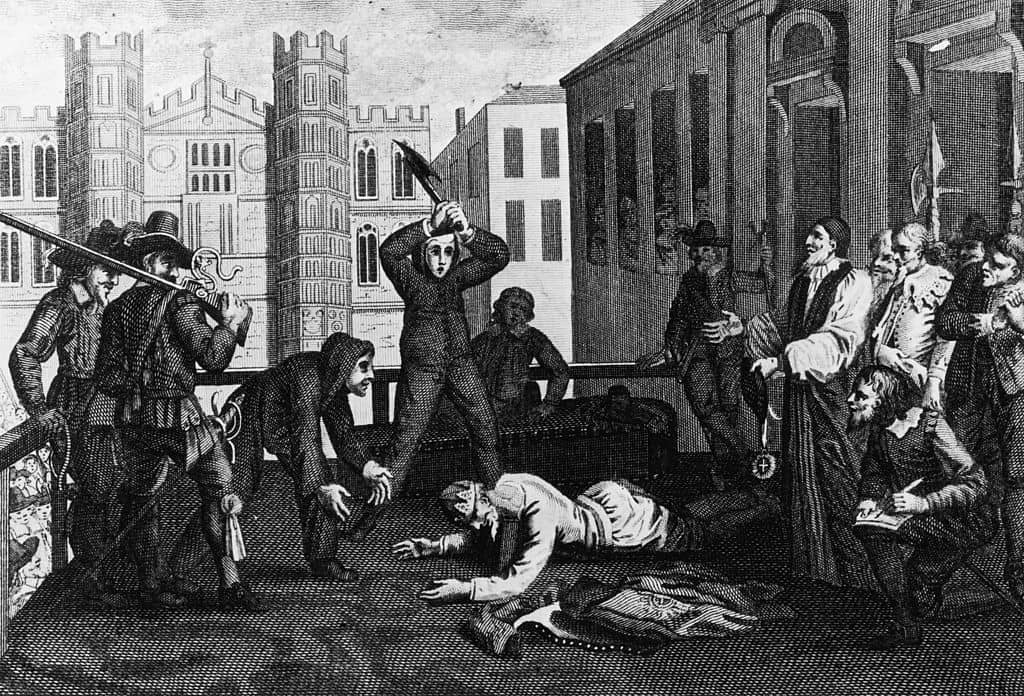When Charles II became king of England in 1660, he pardoned most of those who’d committed crimes during the civil war and Commonwealth. The Act of Indemnity and Oblivion, from which Robert Harris’s propulsive new novel takes its title, promised to wipe the slate clean and ‘bury all seeds of future discords’. But the monarch, generally tolerant, made an exception of the 59 men who, 11 years earlier, had signed his father Charles I’s death warrant.
Act of Oblivion opens on a drowsy midsummer day as two of those 59, having fled across the Atlantic, arrive in Boston. One is Oliver Cromwell’s cousin, Edward Whalley, and the other Whalley’s son-in-law, William Goffe. Both characters are based on real people (major generals, though Harris makes them colonels), and this densely populated novel, which spans two decades, abounds with familiar figures and incidents. The plague of 1665 liquefies its victims’ bodies; Samuel Pepys appears fleetingly, and the Great Fire of London rips through the city’s medieval heart. A distant observer spots a ‘fringe of brilliant orange creeping wormlike along the crowded houses lining London Bridge’.
The plague of 1665 liquifies its victims’ bodies, and the Great Fire rips through the city’s medieval heart
Richard Nayler, who’s charged with locating the regicides, is Harris’s invention – ‘one of those shadows who moves, anonymous, along the private passages and through the council chambers of every nation in every age’. He keeps a handkerchief stained with Charles I’s blood in a pouch next to his heart, and has ugly personal reasons for reviling the parliamentarian forces. Inevitably, he becomes consumed with the hunt for Whalley and Goffe.
The New England colonists are sympathetic to the fugitives. Sharing the pair’s anti-monarchist sentiments, they at first treat them ‘like angels dropped from heaven’. Meanwhile Nayler, who finds America ‘pulsing with energy and greed’, is daunted by its scale: ‘How were two men determined to hide ever to be discovered in such a silent, unpeopled wilderness?’ But as he comes to terms with the landscape and draws close, Whalley and Goffe no longer feel able to skulk in safe houses. They retreat into the wilds, at one point hiding in a remote cave where they fashion bows and arrows from hickory branches, feathers and flint. Their relationship falters. Goffe remains wedded to Cromwell’s political and religious mission, but Whalley chooses to write a memoir depicting their former master in a not entirely favourable light.
Harris has done his research, even consulting an obscure 1970s thesis about the fortunes of the real-life Whalley family. But the evocation of period detail doesn’t always convince. It jars when he has Whalley dream of his younger self and Cromwell playing ‘among the huge pink rhododendrons in the gardens of Hinchingbrooke’, as the species was not introduced to Britain until the 18th century. Nayler muses on how ‘periodic fits of black dog had afflicted him since his youth’, but ‘black dog’ was at the time slang for a counterfeit coin and didn’t come to denote melancholy till 100 years later. He also casually ticks entries on a list with a pencil, an uncommon item in 1660. And surely no one who commanded a cavalry regiment at the Battle of Naseby, as Whalley did, would describe the terrain there, with its strategically significant ridges, as ‘flat’.
None of this interferes with the lucidity of the storytelling or its suspensefulness, and each of the main characters has a satisfying degree of moral ambiguity. There’s a topical message, too, about the lasting wounds of ideological division. In Harris’s telling, the Restoration may initially promise liberation after years of repression, but fractious partisanship and political volatility persist. His central trio are cautionary examples of the dangers of being in thrall to the past.






Comments